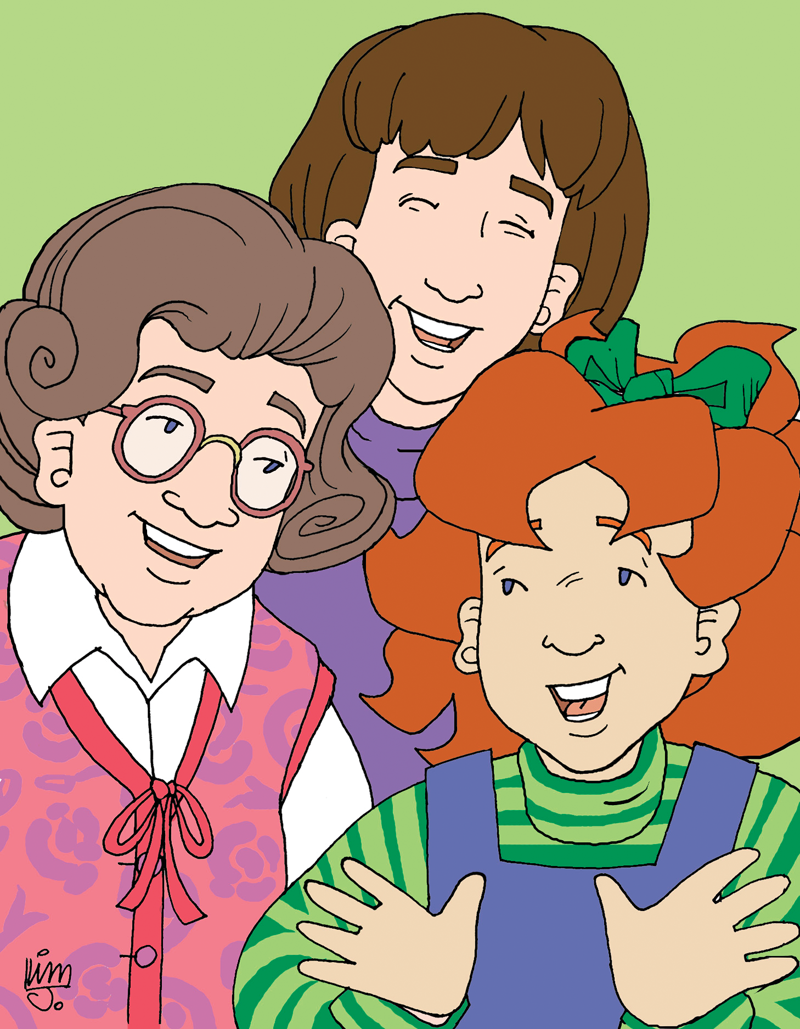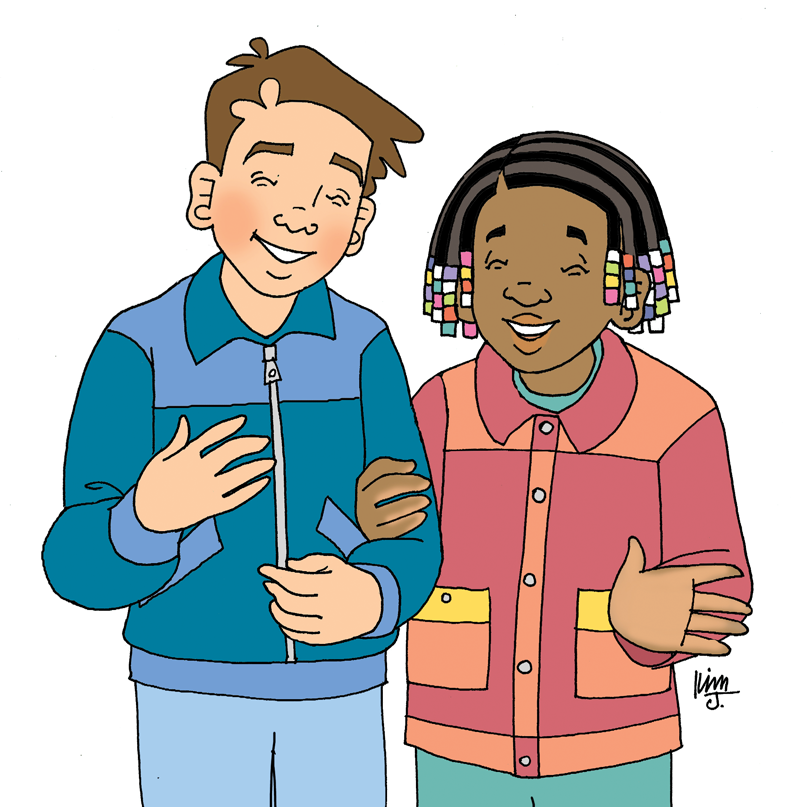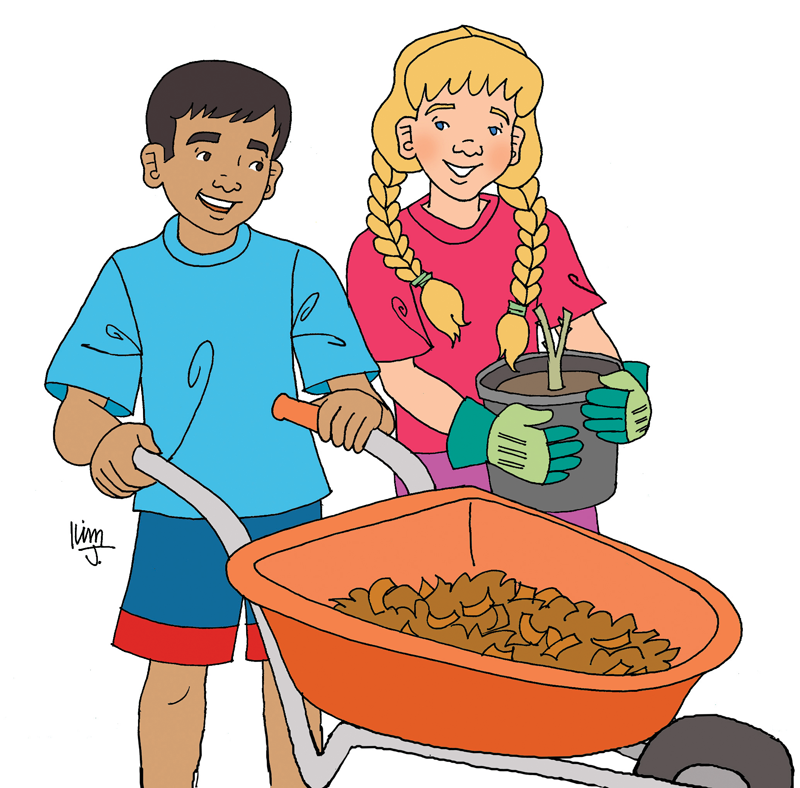
A Trip to the Mountains
Everyone had been very, very busy for the last few weeks, trying to get everything packed up and ready to go. The Brooks family in Georgetown had also decided to go along. They had two little girls—four-year-old Flora and nine-month-old baby Juanita. Both families also planned to take a couple of older teenage girls along to help with the children and housework. Altogether they made a rather large group.
Finally the day came to load everything on the ferry for the first part of the journey. When all the luggage and supplies were finally loaded, Mother settled onto the ferry bench with a sigh. “I guess you could say that the hardest part of the trip for me is done with, now that we have loaded up everything.” She paused and wrinkled her forehead. “I do wonder if I have forgotten anything important.”
Dad laughed. “You’ll find out soon enough, but by then it will be too late anyway. This isn’t exactly going to be an easy trip, you know.”
Leona watched as her younger twin sisters bounced up and down on the bench. “Don’t you think this boat is rocking enough?” she asked. “Do you have to bounce too?”
“But we’re so excited!” Vivian shouted. “We are finally on our way.”
“What do you mean, ‘This isn’t an easy trip,’ Dad?” Viola asked.
“Remember, I told you we would have to hike part of the way,” Dad said. “Well, you better enjoy the boat, train, and truck part. Because it is about a three day hike in the jungles to get to the mission station.”
“How will we carry all our supplies and clothes?” Vivian asked.
“What’s the matter?” Dad teased. “Don’t you think we can carry all these packages?”
“Oh, Dad,” Leona gasped. “There must be over a hundred packages here. There is no way we could carry these all ourselves.”
“I guess you will have to wait and see,” Dad said. “We can’t even take horses on this trail. In fact, the Indians say that only people, dogs, and monkeys can make it over the trail.”
“I’ll make it, I’m a people,” Leona teased. “Vivian can be the monkey, and let’s see, that leaves Viola and Muriel to be . . .”
“Now, Leona,” Mother interrupted, “this is going to be a long trip. Let’s not start teasing each other already.”
Just then the whistle blew, and the ferry boat bumped against the dock.
“It looks like the first part of our trip is almost over,” Mother said. “Gather up your things and let’s get ready to get off.”
“Let’s go. We’ve got a train to catch,” Dad said.
He hurried everyone off the ferry and saw that all the supplies were unloaded. Then they all boarded a train that would travel along the coast until it reached the Essequibo River. After a train trip of about six hours, they once again had to unload everything. This time they loaded it all onto a boat. The boat would travel up the river to the town of Bartica.
As they traveled up the wide river, Dad explained a little more about the trip. “We will spend tonight in Bartica, and then travel by truck through the jungle for two days,” he said. “Then we will travel by paddle boat on the MazaruniRiver for a ways. The Mazaruni River actually runs down into the river here, but we can’t travel the whole way on the river.”
“Why not?” Vivian asked. “We could just trade boats when the river gets smaller. That sounds easier to me.”
“Well, you see,” Dad explained, “the river is coming from high up in the jungle down to the ocean, and it drops over 5,000 feet. That means there are a lot of rapids and waterfalls on the river. Sometimes they do take canoes down the river, but do you know what they have to do?”
The four girls shook their heads.
“When they come to rapids or waterfalls, they just take the canoe out of the water and carry it on their head around to smooth water again.” Dad smiled. “Now that doesn’t sound so easy after all, does it?”
The pastor of the Adventist church in Bartica came out to meet everyone. He took them to a nearby hotel, where the four sleepy girls tumbled into bed.
“Try and get a good night’s sleep tonight,” Dad said as he tucked them in. “This is the last time, until we get to the mission, that you will get to sleep in a bed. After this, we have to camp out.”
“Good night, Dad,” Leona said, snuggling into bed. She felt very tired already, and the hiking part hadn’t even started. She wondered what it would be like to live that far off in the jungle. There wouldn’t be any stores or markets in the jungle. They would have to grow all of their own food. She drifted off to sleep wondering what kind of food the Indians ate.
At six o’clock the next morning the big truck pulled away from Bartica with the whole group and all the supplies on board. The truck headed into the jungle on a one-way dirt road.
Leona settled down on the hard wood bench as the truck bounced over the rough road. She heard Mother whisper to Dad, “I hope all our food doesn’t get smashed with those men sitting on it.”
She turned around and looked at the back of the truck, where all their supplies were stacked. On top of the pile sat a couple of men. Leona guessed they must be the gold diggers she had heard about. The men had packs and shovels with them. She watched as they bounced around on top of the boxes as the truck lurched over the ruts.
She looked back to see what Dad would say, but he just smiled and shrugged his shoulders. Leona knew that most of the food was in large metal cans so it was probably safe enough. Maybe Mother just didn’t like the idea of someone sitting on her food.
It was only 100 miles down the road to the government rest station. However, the truck could only travel about 10 miles per hour, so it took almost 10 hours to get there. Everyone was tired and sore when they finally stopped for the night. It was only a camping shelter, so everyone had to bring their own sleeping equipment.
“There are only 25 miles left of this road,” Mother said as she unloaded food for supper. “How long will that take us?”
“It will still take all day,” Dad told them. “That is why they built the hut here. It is about a day’s journey either way.”
“The truck must not go very fast if it takes all day,” Muriel stated. “I would think we could walk that fast.”
“Probably so,” Dad admitted. “But don’t worry, you will get plenty of chances to walk in a few days.”
The next morning everyone loaded up the other truck, and off they went over the last 25 miles. That evening a very tired group reached the little town of Issano on the Mazaruni River.
“Tomorrow we have another boat ride,” Dad said.
“When are we ever going to get there?” Vivian asked.
Leona had been wondering the same thing, but she hadn’t wanted to ask. Now she listened for Dad’s answer.
“We are actually almost halfway there,” Dad replied. “But the rest of the journey is going to take a lot longer. We will spend three days and two nights going up the Mazaruni River, and then we will spend Friday night and Sabbath at Kurupung. After that we have to travel by paddle boat to the foot of the mountain divide. Then we get to hike for three days. Then the last part of the trip will be in paddle boats again, up to the mission station. I just hope we can make it to the mission by the next Sabbath.”
That’s another week and a half! Leona thought.
Time went by faster than Leona had thought possible, and a few days later they were in paddle boats going up the last creek before thy reached the mountain.
As the paddle boats traveled up the winding creek, Leona almost drifted off to sleep to the sound of the rhythmic paddles. Dad started to say something, and Leona sat up suddenly as she realized what he was saying.
“We are almost there,” Dad began. “Just one more turn around the river, and then you will be able to see for yourself just how all these supplies that we have brought with us are going to get to the mission station.”





